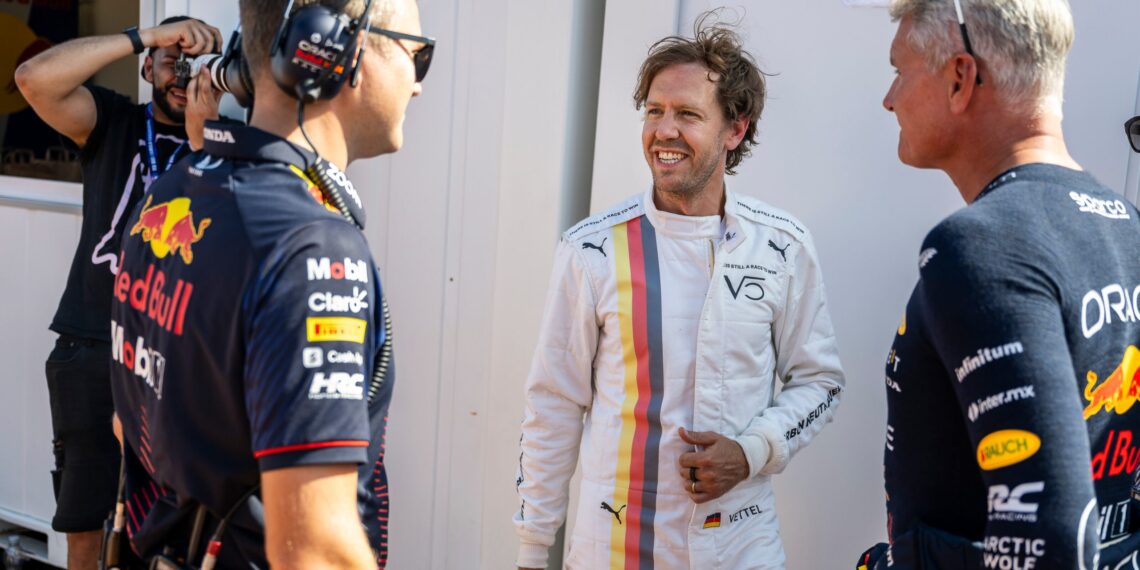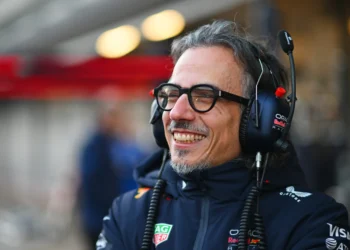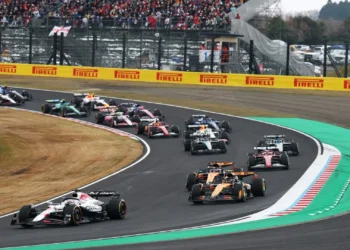Sebastian Vettel Sounds Alarm on 2026 F1 Power Unit Overhaul: “Not Entirely Convinced”
In a bold declaration that has sent shockwaves through the racing community, four-time Formula 1 World Champion Sebastian Vettel has expressed serious reservations about the sport’s radical shift in engine regulations for 2026. After over a decade dominated by turbo-hybrid technology, the upcoming changes promise a reinvention of F1’s power units, yet Vettel fears this could jeopardize the very spirit of motorsport itself.
The impending engine overhaul will eliminate the MGU-H component, resulting in a new hybrid system that splits power generation equally between electric motors and traditional internal combustion engines. This drastic transformation is part of the FIA’s ambitious agenda for sustainability, alongside efforts by Formula 1 Management (FOM) to attract new automotive giants like Audi, Ford, and General Motors to the grid. But Vettel warns that such changes could come at a steep price.
He lamented, “Innovative solutions from the previous engine regulations are being dispensed with in order to make it less expensive,” while questioning the true motivation behind this push. The former champion underscored that while the shift to electric components is essential for the future of mobility, he remains skeptical. “I’m not entirely convinced by the new regulations yet,” he said, highlighting a glaring oversight: “Recovering energy is great, but doing it only on the rear axle and ignoring the front axle doesn’t make sense to me.”
Vettel’s concerns extend beyond mere performance metrics; he also scrutinizes the push towards biofuels mandated by the new regulations. While the FIA has decreed that the 2026 engines must run on 100% sustainable biofuels, the four-time champion is not easily swayed. He fears that the competitive nature of F1 could lead to the misuse of these fuels, diluting their potential impact on real-world applications. “Climate-neutral fuels are good because there is a need for them in the world outside motorsport,” he remarked, pointing out their importance for everyday vehicles, shipping, and aviation.
However, he cautions against letting the relentless pursuit of performance compromise the integrity of these fuels. “If you unleash the typical Formula 1 development race on them, things can quickly go in the wrong direction, as was the case in 2014,” he warned. Vettel advocates for stringent regulations on the origins of these fuels, to ensure they bear relevance to mass production and sustainable practices.
Moreover, the 2026 regulations promise drastic changes to car design, including active aerodynamics and a reduction in weight by 30 kilograms. These alterations are touted to enhance race competitiveness, yet Vettel fears they may instead pave the way for a spectacle-driven approach that detracts from the essence of racing. “There will be a move away from this transfer and more towards entertainment,” he asserted, highlighting a potential shift in focus that could ultimately ruin the sport.
Vettel insists on the importance of maintaining the core values of Formula 1 while embracing environmental responsibility. “It would be a shame if motorsport as we know it ceased to exist,” he stated, emphasizing that innovation should not compromise the spirit of competition. “From a sporting perspective, the competition must be as close as possible without damaging the spirit of Formula 1. And people must still be able to afford to watch the sport.”
As we stand on the brink of a new era in Formula 1, Vettel’s stark warnings serve as a crucial reminder of the delicate balance between innovation, sustainability, and the very essence of motorsport. Will the 2026 regulations herald a fresh dawn for racing, or will they irreparably alter the landscape of Formula 1 as we know it? Only time will tell, but one thing is certain: the eyes of the racing world are firmly fixed on the unfolding drama.










